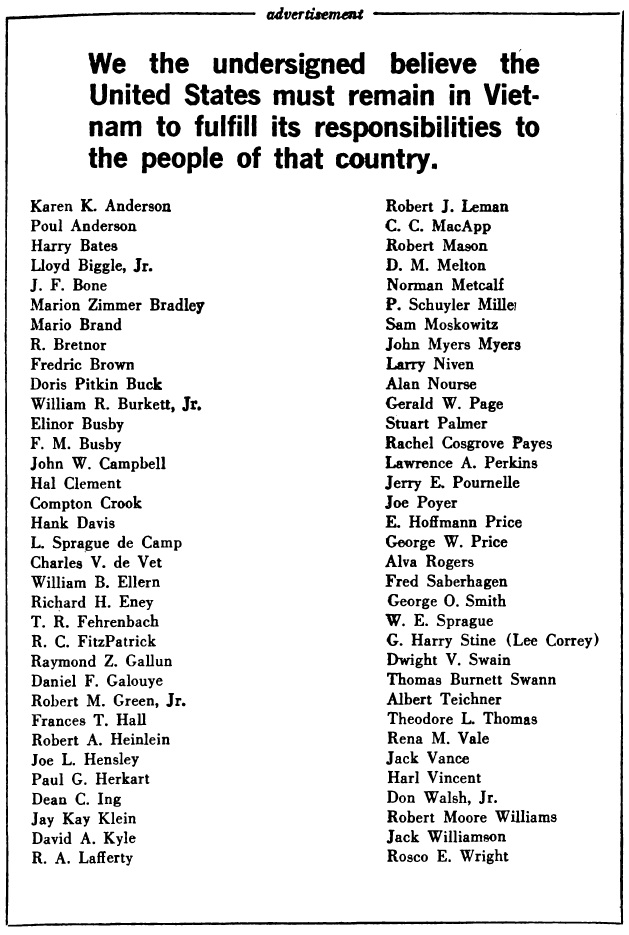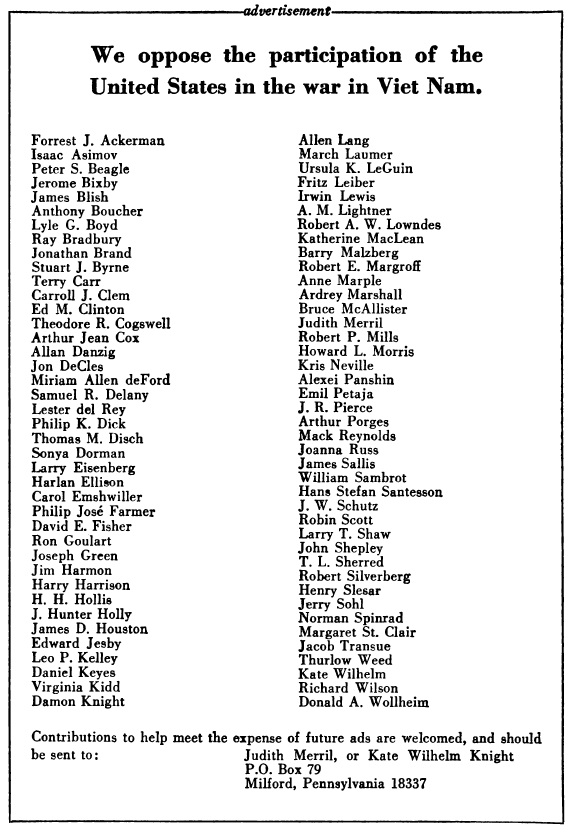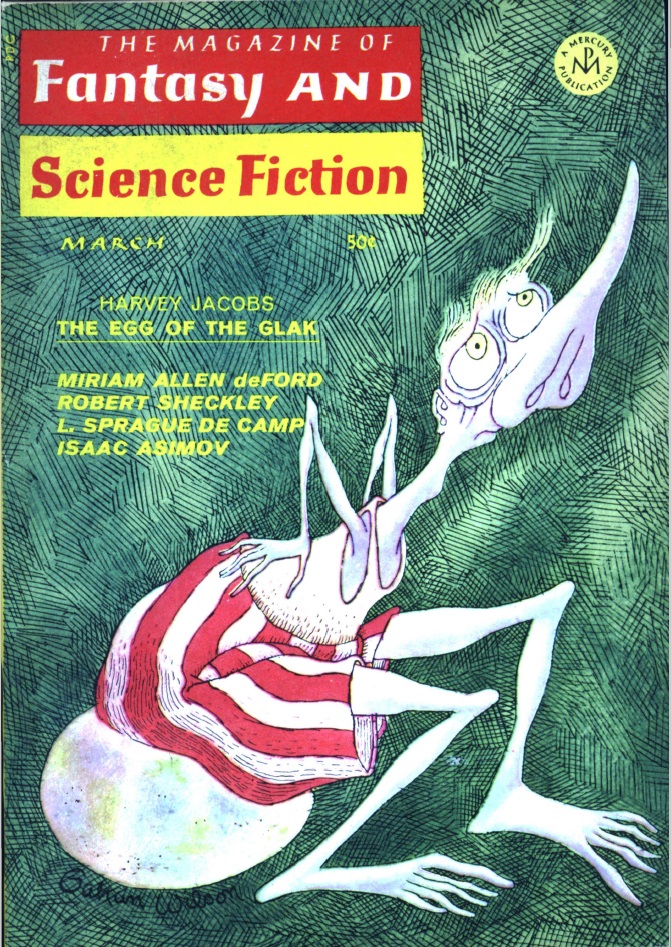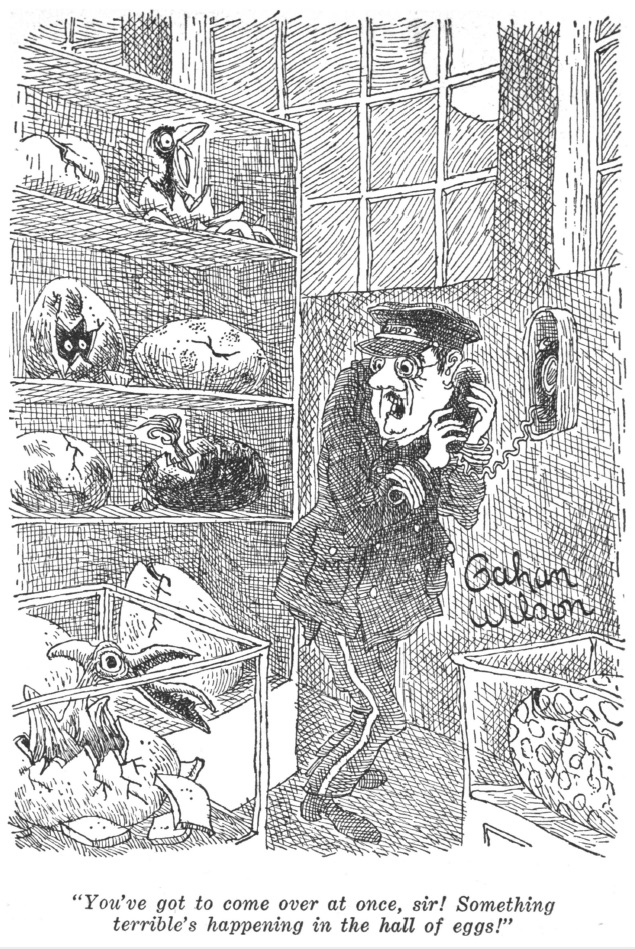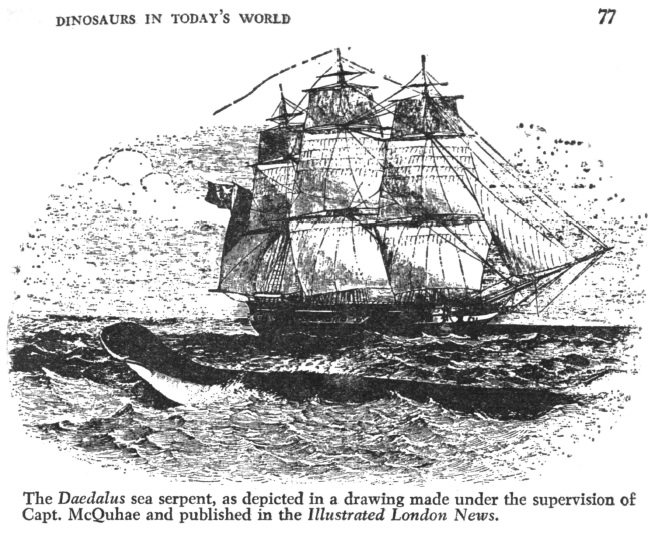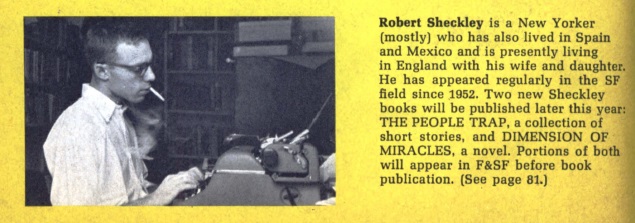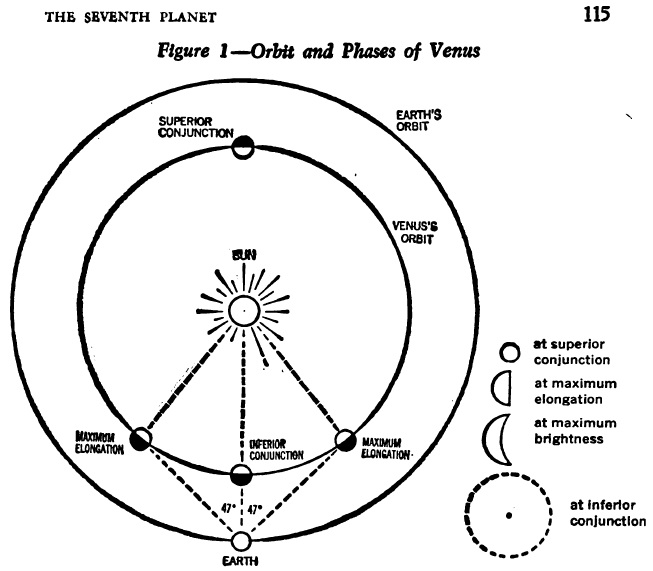
by Gideon Marcus
Beyond FM
Not too long ago, the FM band of the radio was mostly for classical music. Why waste high fidelity on the raucous rock and pop the kids were listening to? In the same vein, the big 33rpm LP records were for grown-ups. That's where you found your jazz, your schmaltz, your classical. The juvenile stuff was put on disposable 45 singles.
Well, it still is, but of late, really starting in earnest around 1965, a lot of Top 40 ended up on LPs, and since last year, the FM stations are playing psychedelia and fuzz more often than not. Is classical down for the count?
Not if the Trans-Electronic Music Productions (T-EMP) company has anything to say about it…

From the back cover of Switched-on Bach, the new LP by the Carlos/Folkman combo who make up the T-EMP, one would think it's yet another fusty classical album. The selections are common, the same kind of thing you've heard a million times before.
But not this way. the T-EMP has rendered all of the pieces entirely electronically. Using Moog synthesizers, many of these familiar songs take on an entirely different character. In some cases, the instrumentation chosen resembles the original harpsichords and flutes and such, and the result is just competent (even a little dry) Bach. On the other hand, you also have pieces like the Brandenburg Concerto #3, particularly the first movement, which are utterly transformed. On those pieces in particular, Carlos and Folkman have departed the natural entirely. With instruments reminiscent of the weird electronic sounds found in the British puppet show Space Patrol, or perhaps the theme of Dr. Who, Baroque becomes by turns cosmic, seductive, and menacing.
Normally, when I listen to classical music, I can imagine the orchestra. With Switched-on Bach, I imagine I'm in the cool, dark halls of a computer, maybe something like the one in Ellison's I Have No Mouth and I Must Scream…before it went murderous. The artificial tones are beautiful, hard-edged, passionate, and perfectly suited to the mathematical rhythms of the King of Köthen.
I'm not the only one who thinks so. Switched-on Bach is a runaway bestseller, and not with the classical set, but with the youth. Heading toward the million mark, the Carlos/Folkman team have wrapped the vintage in a computerized cloak, and the kids are eating it up.
Including this one (I'm only 23, just like Carol Burnett). Buy yourself a copy. I promise it'll be worth it.
Beyond reality
Unlike Switched-on Bach, the latest issue of The Magazine of Fantasy and Science Fiction is unlikely to become an enduring classic, but there are a couple of entries well worth your time.

by Jack Gaughan
Prime-Time Teaser, Bruce McAllister
The last woman on Earth, the freak survivor of a worldwide artificial plague, splits herself into a thousand personas so as to shield herself from the enormity of her reality. Upon discovering a screenplay her writer persona wrote, she sees, poetically rendered, the loneliness and desperation she's been repressing for three years. Like the 5D home in Heinlein's And he built a crooked house…, all of her personas collapse into the original, leaving her bleak and alone.
Aside from plausibility issues (Edna survives in a bathysphere—presumably every submariner in the world is still alive, too), there are pacing issues. The story moves along until we get to the screenplay, which is several pages of an increasingly sunburned turtle plodding up a beach while a building makes passes at her.
Basically, cut-rate Ballard, the type we've seen in New Worlds for the past five years. We keep saying the same thing: Bruce has potential. Bruce writes pretty well for someone so young. Bruce has yet to write something we really like.
Three stars.

by Gahan Wilson
The House of Evil, Charles L. Grant
Written in quasi-archaic style, this is the would-be-droll story of a writer who is conned, by a lithe woman and her coffin-dwelling uncle, to have a brush with the unnatural that leaves him Undead.
These pastiche stories require a deft touch that Grant doesn't have. Particularly when he has his character pour rather than pore over documents ("pour what?" I always wonder).
Two stars.
The Indelible Kind, Zenna Henderson
The stories of The People continue, this time detailing the encounter between a teacher at a tiny school in the Southwest and a precocious but illiterate young telepath. When the fourth-grader begins picking up the distressed thoughts of a cosmonaut stranded in orbit, the teacher gets involved in a rescue operation that is out of this world.
This tale is a strange mix of the familiar and the unusual. We've now had more than a dozen The People stories that involve the interactions of normal humans with the alien (but human) psioinic exiles, refugees from their own exploded planet. In some ways, I feel that well has been mined out. The telling is different, this time. Instead of the pensive, dreamy mode that Henderson employs, the story has a breathless quality that reminds me of the fanfiction I read in the various trekzines coming out—that sort of, "Golly! I'm on the Enterprise with Mr. Spock!"
It's not bad, just weird, and not up to the standards of Henderson's better work. Plus, I find it strange how brazenly The People are displaying their powers these days. Surely, that should have follow-on consequences.
Three stars.
Miss Van Winkle, Stephen Barr
A girl sleeps from birth until she is 19, then awakes—beautiful, articulate (though not literate), and devoid of superego. She is unhappy until she meets Walkly, who loves her for the societal outcast she quickly becomes.
I am not sure if this story is supposed to be a satire on artificial social conventions or just cute. Either way, it's a bit clunky and wholly insubstantial. Morever, it twice tries to make clever use of the girl's surname(s), but because the author introduces them late, the reader is never let in on the joke. It'd be as if, on the last page of the mystery, Poirot pulled the heretofore unknown murder weapon out of his pocket and used it to solve the case.
Two stars.
A Report on the Migrations of Educational Materials, John Sladek
Every book in the world, starting with the oldest, most neglected, and ending with even the most modest of volumes, begins to wing its way toward the Amazon. That's pretty much the story.
Sladek writes well, and he writes this well, but there's not much there to this there.
Three stars, I suppose.
The Worm Shamir, Leonard Tushnet
The best science fiction incorporates real science, allies it with human interest, and makes clever predictions regarding the application of a new discovery. This story does all of these things admirably.
Professor Zvi Ben-Ari of Israel's Rehovoth research center is hot on a Biblically inspired trail. He is convinced that the legend of King Solomon's "Shamir", a worm used to shape rocks for use in an altar, has a kernel of truth. But what truth could it be? And if such truth exists, and it could be used for war, what then?
A thoughtful, atmospheric, humorous piece. Perhaps, as an Israeli, I am biased (or, shall we say, the target audience), but I quite enjoyed it.
Five stars.
Lost, Dorothy Gilbert
Poetry: an alien pilot, scouring the Earth for some kind of Arcadia, finds instead the fleecy flocks of Scottish Skye.
It didn't move me. Two stars.
View from Amalthea, Isaac Asimov
Inspired by a scene from the movie 2001, the Good Doctor's piece this month is about how the four big "Galilean" moons of Jupiter might look to an observer on the innermost satellite, Mimas. He details their size and brightness. As a bonus section, he talks about how the many moons of Saturn would look from the innermost satellite, Janus.
He never quite comes around to confirming that the shot of Jovian moons in the movie was plausible, nor does he explain that a moon one hundredth as bright as our Moon is still 100 times brighter than Venus (though that brightness is spread over a large disk, so it would look dim to our eyes). I chalk up those omissions to space concerns. As is, it's a handy article for those who don't want to have to do the math every time.
Five stars.
Gadget Man, Ron Goulart
Satirist/thriller-writer Ron Goulart offers up an "if this goes on" adventure set in The Republic of Southern California some time around the turn of the next century. Hecker, an agent of the Social Work division of the police force is tasked to make contact with Jane Kendry, head of the left-wing insurgency, and find out if she's responsible for all the riots breaking out, even among the $100,000 houses and manicured lawns of affluent Orange County.
Along the way, he runs into hippie beach bums, an erstwhile Vice President and his Secretary of Defense, running a sort of revival (continuation?) of the arch-conservative John Birch Society, and finally, The Gadget Man himself, who runs the wheels within the wheels.
In tone, it's more grounded than Bob Sheckley's whimsy, more silly than Mack Reynolds' stuff. It's eminently readable, occasionally smile-inducing, suitably riproaring, and utterly forgettable.
Three stars.
Compare and contrast
In the end, Carlos and Folkman provide a shorter-length but replayable and consistent pleasure. F&SF this month is, for the most part, forgettable—but it takes longer to get through, and the nuggets of gold shine brightly.
Both have earned permanent places on my shelves, and I guess that's all one can ask for. And here, what's this? The back of F&SF has something most interesting. We'll have to try that out, too, won't we?


![[November 20, 1968] Transitory and lasting pleasures (December 1968 <i>F&SF</i>)](https://galacticjourney.org/wp-content/uploads/2023/11/681120cover-672x372.jpg)

![[October 20, 1968] Giants among Men (November 1968 <i>Fantasy and Science Fiction</i>)](https://galacticjourney.org/wp-content/uploads/2023/10/681020cover-672x372.jpg)


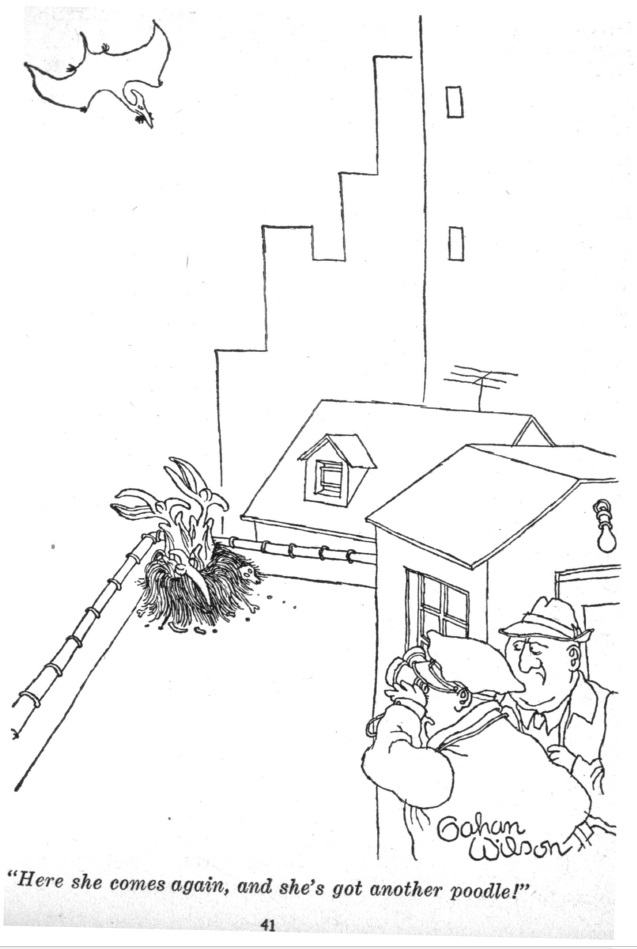
![[September 20, 1968] It comes and goes (October 1968 <i>Fantasy and Science Fiction</i>)](https://galacticjourney.org/wp-content/uploads/2023/09/680920cover-651x372.jpg)


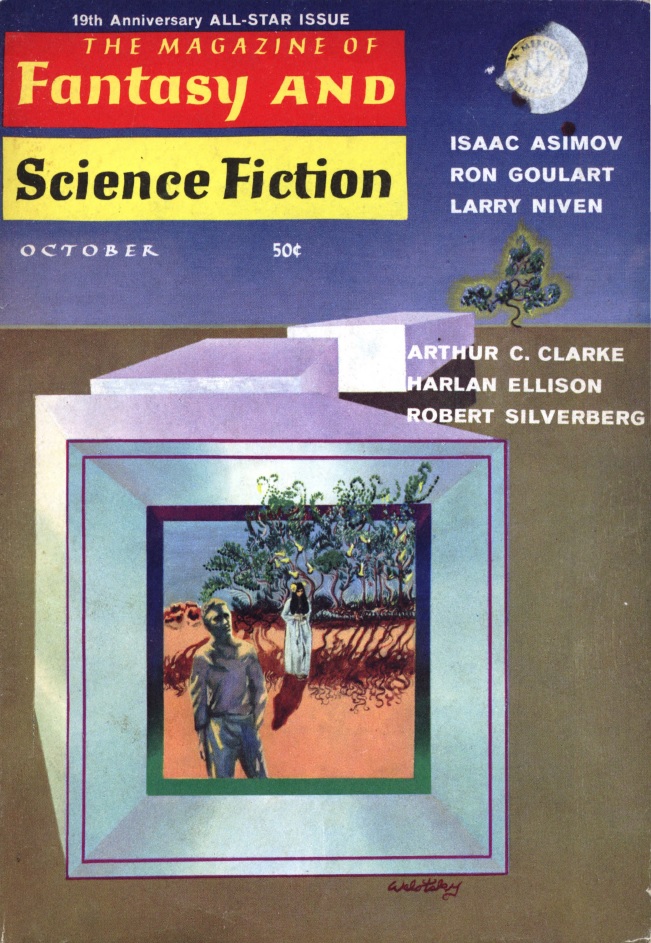

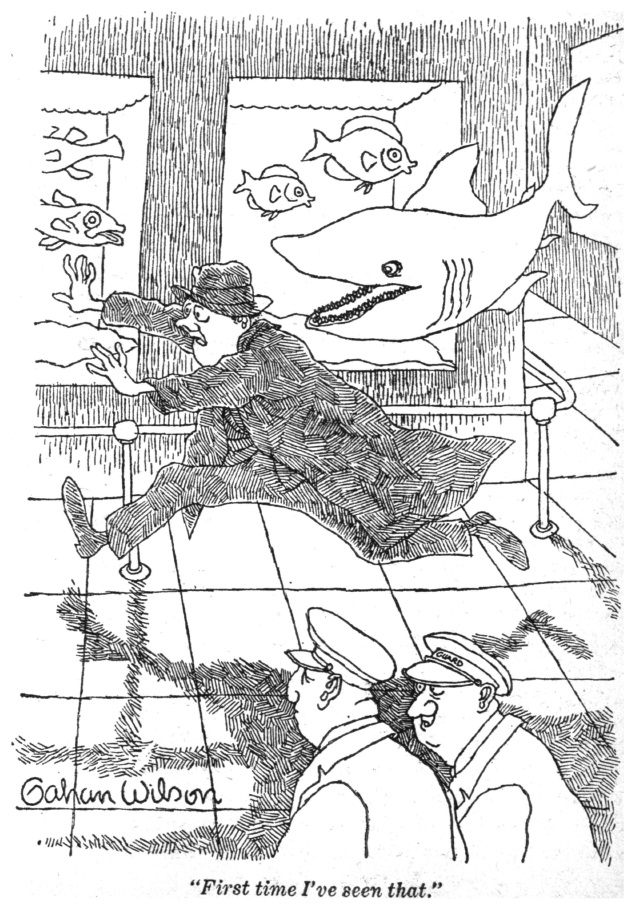
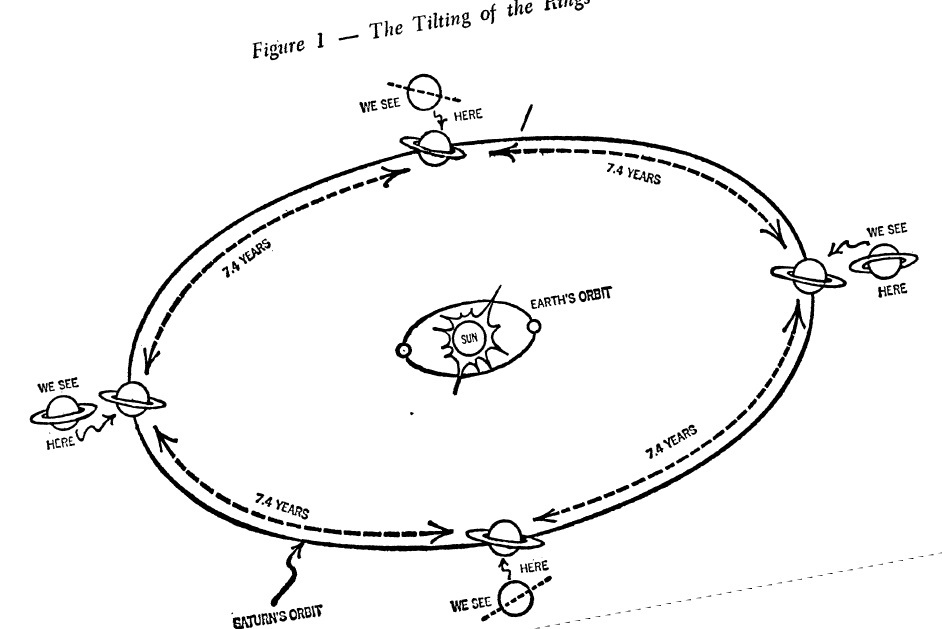
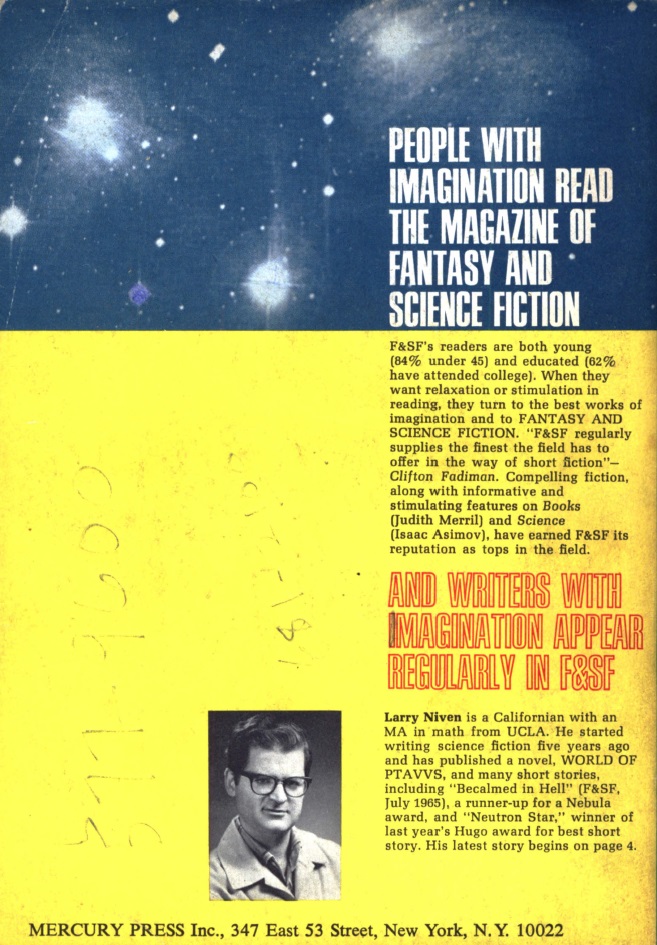
![[August 20, 1968] A tale of two issues (September 1968 <i>Fantasy and Science Fiction</i>)](https://galacticjourney.org/wp-content/uploads/2023/08/680820cover-659x372.jpg)



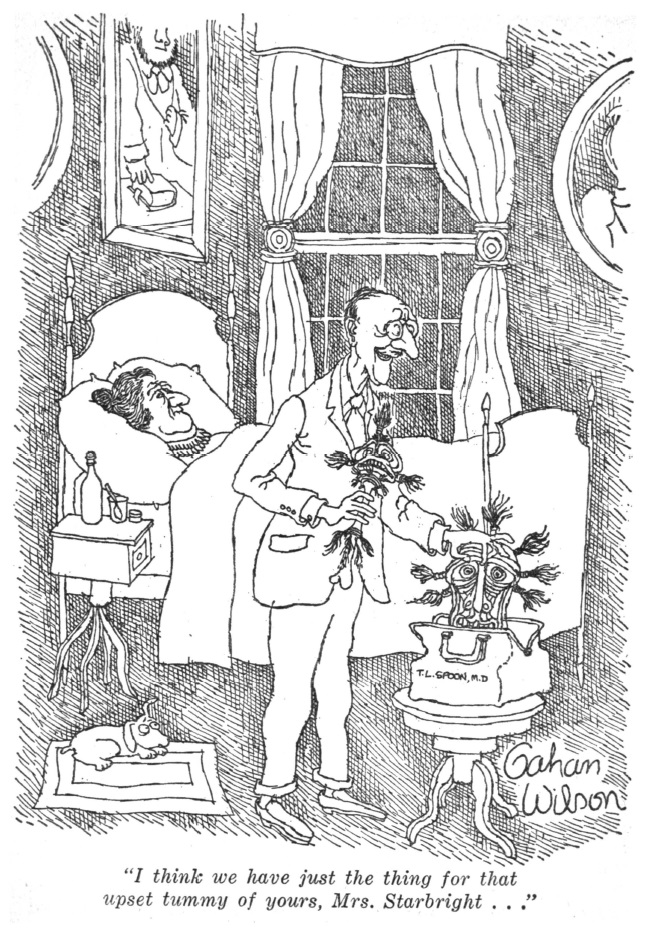
![[July 22, 1968] Shades and Shadows (August 1968 <i>Fantasy and Science Fiction</i>)](https://galacticjourney.org/wp-content/uploads/2023/07/680722cover-664x372.jpg)




![[June 26, 1968] To far off lands (July 1968 <i>Fantasy and Science Fiction</i>)](https://galacticjourney.org/wp-content/uploads/2023/06/680620cover-451x372.jpg)














![[May 20, 1968] Dying, deflating, and deorbiting (June 1968 <i>Fantasy and Science Fiction</i>)](https://galacticjourney.org/wp-content/uploads/2023/05/680520cover-665x372.jpg)




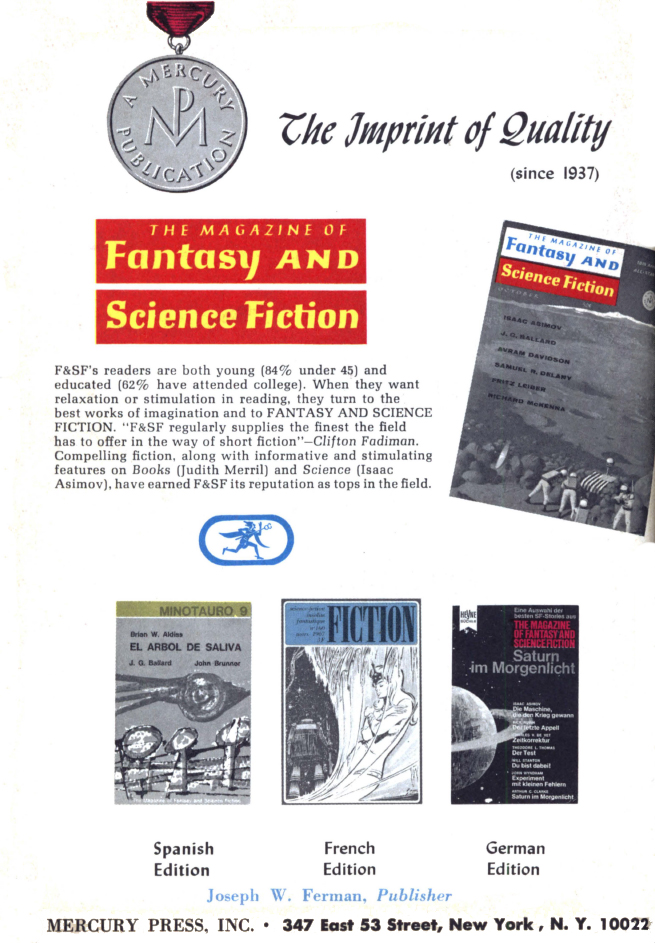
![[April 20, 1968] A treat for the senses (May 1968 <i>Fantasy and Science Fiction</i>)](https://galacticjourney.org/wp-content/uploads/2023/04/680420cover-672x372.jpg)




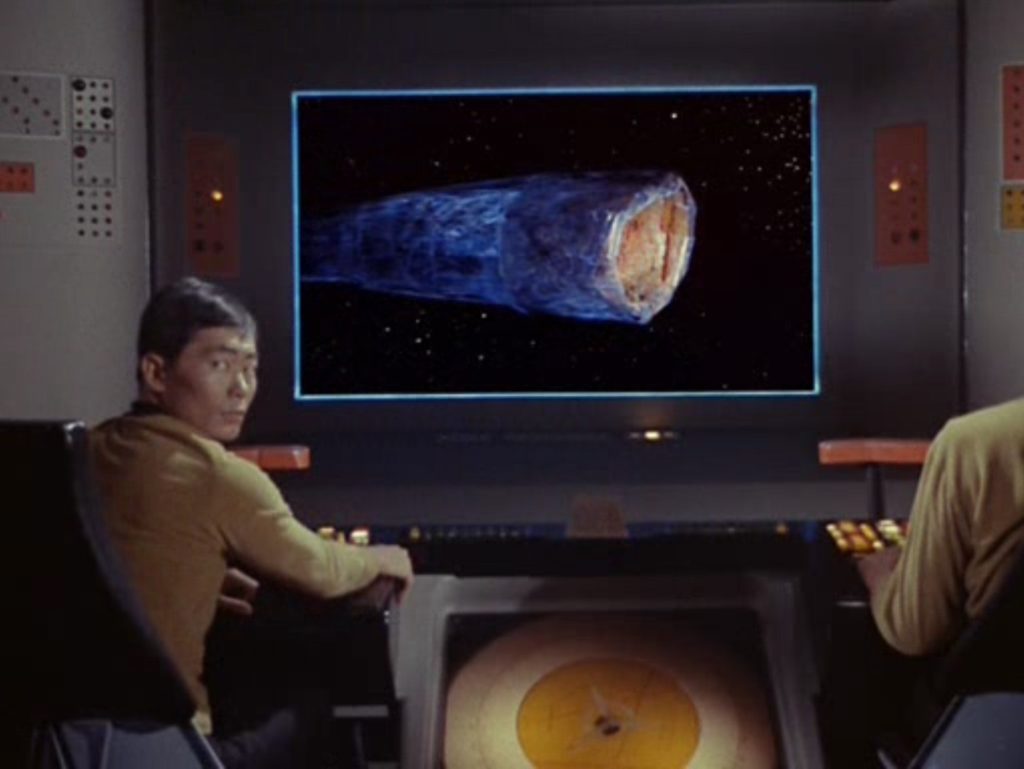
![[March 20, 1968] Missed opportunities (April 1968 <i>Fantasy and Science Fiction</i>)](https://galacticjourney.org/wp-content/uploads/2023/03/680320cover-666x372.jpg)


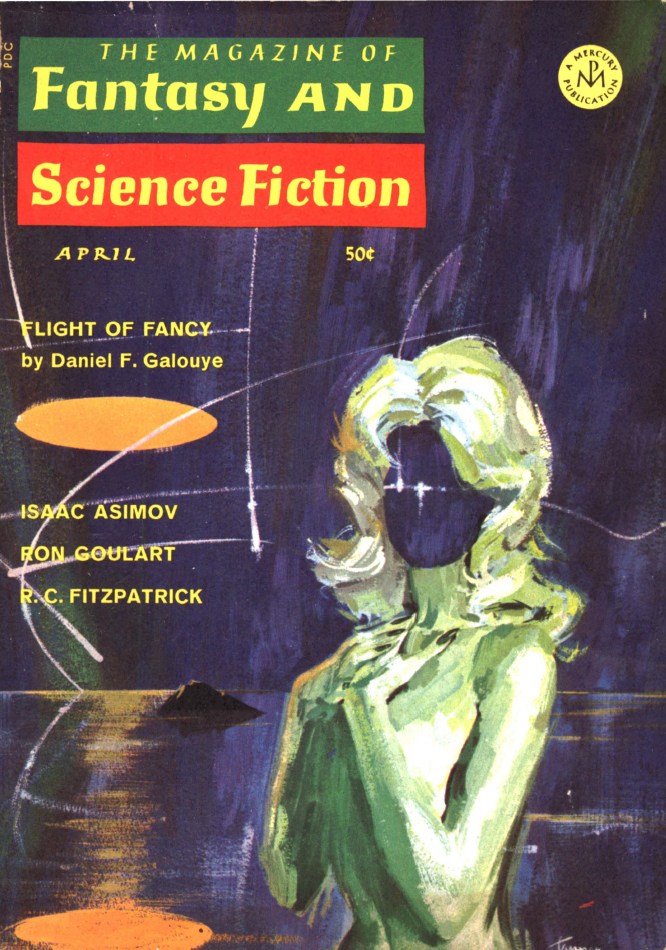



![[February 20, 1968] 1-2-3 What are we fighting for? (March 1968 <i>Fantasy and Science Fiction</i>)](https://galacticjourney.org/wp-content/uploads/2023/02/680220cover-671x372.jpg)
